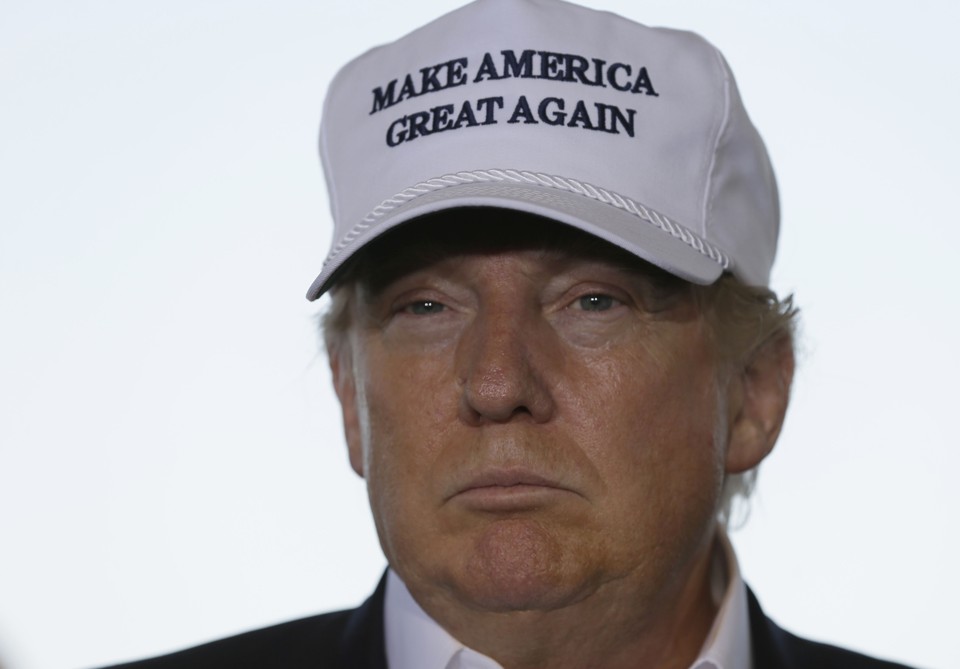Oddly, Donald Trump is beginning to foster a number of postmortems of his candidacy. That doesn't mean that he's not going to win his party's nomination or that he has no chance of winning the general -- although his chances there are slimmer. It's because political observers have moved from accepting his candidacy at long last and gone to figuring out how it happened.
The reasons these ruminations take the form of a postmortem are twofold: One, something is dying (could be either the Republican Party or movement conservatism, or both), and, two, implicit in the Trump candidacy's deconstruction is the hope that it will die if it makes it near the general election.
Josh Marshall's was the first deconstruction that hit all or most of the marks:
First [of the reasons for Trump's appeal and success] is simple political substance. TPM Readers are entirely familiar with the fact that a large segment of the American right is animated by a belief that 'their' world, their America is being taken away from them - this includes everything from declining white racial dominance, having to choose whether you want to hear the phone tree message in English or Spanish, changing cultural mores. The whole package. This is the essence of Trump's campaign - beating back the external threat - the harsh anti-immigrant policies, Muslim bans, flirting with white supremacists, etc. It is the most visible and literal part of Trump's appeal.
Second is the appeal to power and force. Trump is the master of GOP 'dominance politics', the inherent appeal of power and the ability to dominate others. All of this has a deep appeal to America's authoritarian right, especially in a climate of perceived threat, which has been growing over the last two decades - something political scientists are now catching on to. We might think of this as the embodiment and acting out of the policy drives noted above. The phenomenon of the imperiled, resentment right is something you're well familiar with if you're a close observer of American politics, certainly if you're a regular reader of TPM. I noted back in December that we were seeing this show up in the demographic data in the unprecedented rising mortality rates of middle-aged whites - from chronic substance abuse, overdose and suicide. As the Washington Post's Jeff Guo noted last week, the states where middle-aged whites are dying fastest heavily correlate with the states where Trump has had his highest margins. Think about that for a second. Trump's message and policy agenda hit every dimension of threat and change.
The third factor is I think the least obvious but for these purposes the most important. On the radicalized, revanchist right, provocation and transgression of norms isn't simply indulged. It functions as a positive good. It is a feature, not a bug, to use the tech phrase. What the mainstream electorate might view as an 'outrage' is actually a signal of the willingness to tear down a corrupt order that is unwilling (Democrats and elites) or unable (RINOs, mainstream GOP) to turn back the tide of threat. So whether or not you think it's a good idea to kill terrorists' families, saying you will is a signal that you won't accept limits. How can Trump break all the rules and pay no price? What's his magic? Changing your positions, obviously lying, taunting enemies - none of these hurt Trump because his core supporters are not seeing them through the same prism you likely are. They're not signs of deception, bad character or untrustworthiness. They all signal a refusal to accept the norms of the threatening order and thus a willingness to overturn it.Pretty much right on. Then I read Phil Torres' indictment of Fox News' role in Trump's rise, despite the fact that Fox didn't necessarily back it:
[...] As the social critic and comedian Jon Stewart once insightfully suggested during an interview with Chris Wallace, the media is strongly biased towards apolitical phenomena like “conflict” and “sensationalism.”
This bad epistemology, Torres warns, leads to diminished critical thinking dangerous to any functioning democracy, something I feel we've all witnessed not only from the beginning of the Obama administration but at least as far back as the rise of right-wing talk radio with Rush Limbaugh and, later, Fox News.
On a slightly adjacent topic, Nancy LeTourneau of Political Animal offers a hopeful projection of what a Trump/Clinton match-up would look like. Trump might not get away with what he has with the lessor beings in the GOP primary when up against Hillary Clinton without paying a hefty political cost.
Those of us who dread a Trump presidency can only hope LeTourneau is right.
 |
| Trump's crowd turning on Black Lives Matter activists. Not very attractive... |


No comments:
Post a Comment